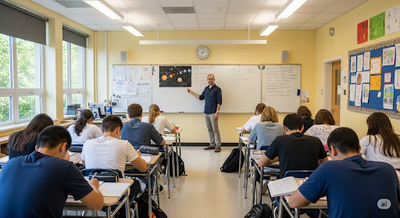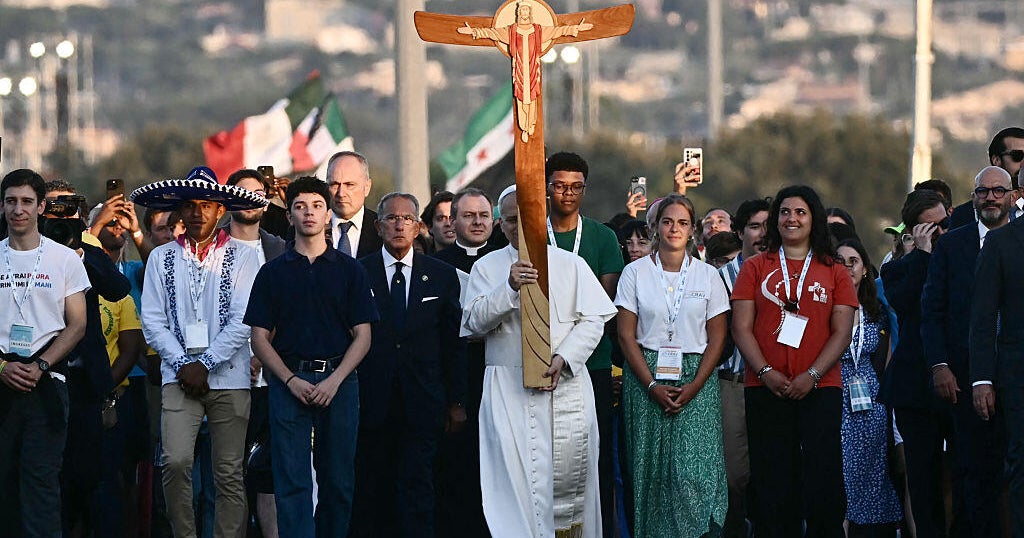
Kuwait’s education overhaul, the largest in two decades is 60% complete/Representative Image
TL;DR:
- Kuwait’s Cabinet has approved a comprehensive six‑pillar education reform, led by Health and Education Minister Sayed Jalal Al‑Tabtabaei, with 60% of the plan completed.
- Core focus areas include curriculum overhaul for Grades 1–9, smart school infrastructure, teacher licensing, and Ministry automation.
- Kuwait is partnering with the OECD to benchmark curricula, link teacher licensing to PISA 2029 readiness, and raise international standards.
After the Cabinet’s formal approval in January 2025, Kuwait’s six‑pillar education reform led by Minister Jalal Al‑Tabtabaei has now reached 60% completion, according to public statements.
This national strategy includes administrative efficiency, curriculum standards, teacher licensing, smart school infrastructure, and digital ministry services, all aligned with Kuwait Vision 2035.
Reform pillars and curricular transformation
- Administrative & Financial Reform
Kuwait aims to reduce financial inefficiencies and reallocate budget resources toward educational development, guided by a new ministry structure approved in July 2025. The reorganization consolidates leadership roles, enhances sector coordination, and establishes performance audit systems.
- Curriculum & International Standards
As per Kuwait Times, a full-scale overhaul of grades 1–9 curricula was approved for 2025–2026. About 80% of middle-level subjects have been rewritten, with an integrated national values framework as per Arab Times. This builds on early standards-based reforms and incorporates AI, cybersecurity, and critical thinking.
- Education Development & Capacity Building
The plan includes adopting global best practices from Finland and Singapore, initiating teacher licensing, enhancing gifted education programs, and building smart schools.
The creation of a National Center for Training Educational Leaders is also underway.
- Engineering & Infrastructure
Refurbishment of old schools and construction of new smart classrooms are central to infrastructure upgrades. Ten specialized field teams using the Balagh system prepare and audit school readiness.
- Ministry Automation & Digital Services
A new Balagh IT platform enables real-time field reporting, coordination, and maintenance tracking. Audit units conduct surprise inspections to monitor compliance.
This digital strategy directly supports governance transparency and operational efficiency.
Under this pillar, technological learning tools, digital classrooms, and programming projects are being implemented to modernize pedagogy and promote student engagement.
OECD partnership & international alignment
Kuwait is finalising a collaboration with the OECD, as announced in March 2025. This framework supports curriculum benchmarking in mathematics, science, and English, plus integration into the PISA 2029 programme, teacher licensure testing, and educational accreditation systems. Minister Al‑Tabtabaei has mandated specialized teams collaborate with international experts, ensuring Kuwait’s educational reforms match global quality standards by the end of the decade.
Policy context & vision alignment
This reform sits within Kuwait Vision 2035, which promotes government accountability, economic diversification, and globally competitive public services. By improving educational quality, Kuwait aims to foster a generation equipped for future global challenges. Earlier reforms backed by the World Bank (2010–2019) laid foundations for competence-based curricula, school autonomy pilots, and institutional accountability, all now scaled up in the current reform phase.
Why it matters
Education sector reform addresses longstanding issues such as limited secondary graduation rates, over-reliance on rote-learning, and weak alignment with labor-market needs. By integrating international standards and strengthening teacher capacity, Kuwait positions education as a pivotal tool for social and economic transformation.Kuwait’s education reform strategy marks one of the most ambitious overhauls in the country’s recent history. With 60% of the plan already executed, the transformation is more than cosmetic, it reflects a structural shift in how the nation views learning, governance, and future-readiness. By embracing international partnerships like the OECD, digitizing core ministry functions, and modernizing both curricula and infrastructure, Kuwait is not only addressing decades-old challenges but also setting a new benchmark for Gulf educational systems. However, sustaining this momentum will require more than policy announcements. Successful reform hinges on consistent funding, transparent implementation, measurable performance outcomes, and strong collaboration with educators on the ground. Moreover, the inclusion of 21st-century skills, digital literacy, and global benchmarks is a long-term investment, one whose impact will be seen not just in classrooms, but in the overall social and economic resilience of the country.

 8 hours ago
1
8 hours ago
1









